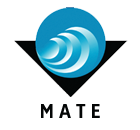International ROV Curriculum Project
On September 19, 2014 following the MTS/IEEE Ocean’s conference at St. John’s Newfoundland, MATE along with more than 20 representatives from industry and education outlined an international ROV curriculum that would: 1) define the competences for a year-long foundational curriculum in electronics, mechanics, hydraulics, robotics and computer controlled systems, that will prepare students for ROV technology; 2) define the competencies for a year-long ROV Technology certificate/degree program that builds upon the foundational curriculum and that is appropriate for a completer of the year-long foundational curriculum or a technical professional changing careers; and 3) allow for international articulation of 2-year ROV technology degrees with 4-year Bachelor of Technology degree programs focusing on marine technology.
The year-long foundational competencies will closely align with mechatronics, electrical and engineering technology competencies. We believe this first year should be as broadly inclusive of as many technical students as possible and give students as much flexibility to pursue a multitude of high-skill, high-pay careers later on. This first year foundational curriculum would not only be suitable for ROV technicians but technicians that could be employed in a variety of fields that include factory automation and manufacturing, robotics, wind power/energy generation, electrical testing and much more.
The second-year ROV competencies will continue to deepen the student’s knowledge and skills in electrical, hydraulic and computer systems as they relate to ROVs while providing additional skills relating to the operating environment and safety (e.g. sonar navigation, tether management, ROV tools, oil and gas operations, video logging and piloting).
View Draft of the ROV Competency Topics To submit comments on the competency topics please download the ROV Competency Topic spreadsheet, make changes using track changes in Excel and upload the file here.
Agenda from the September Meeting


